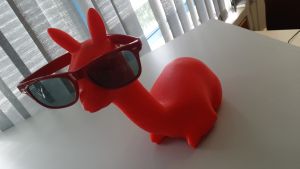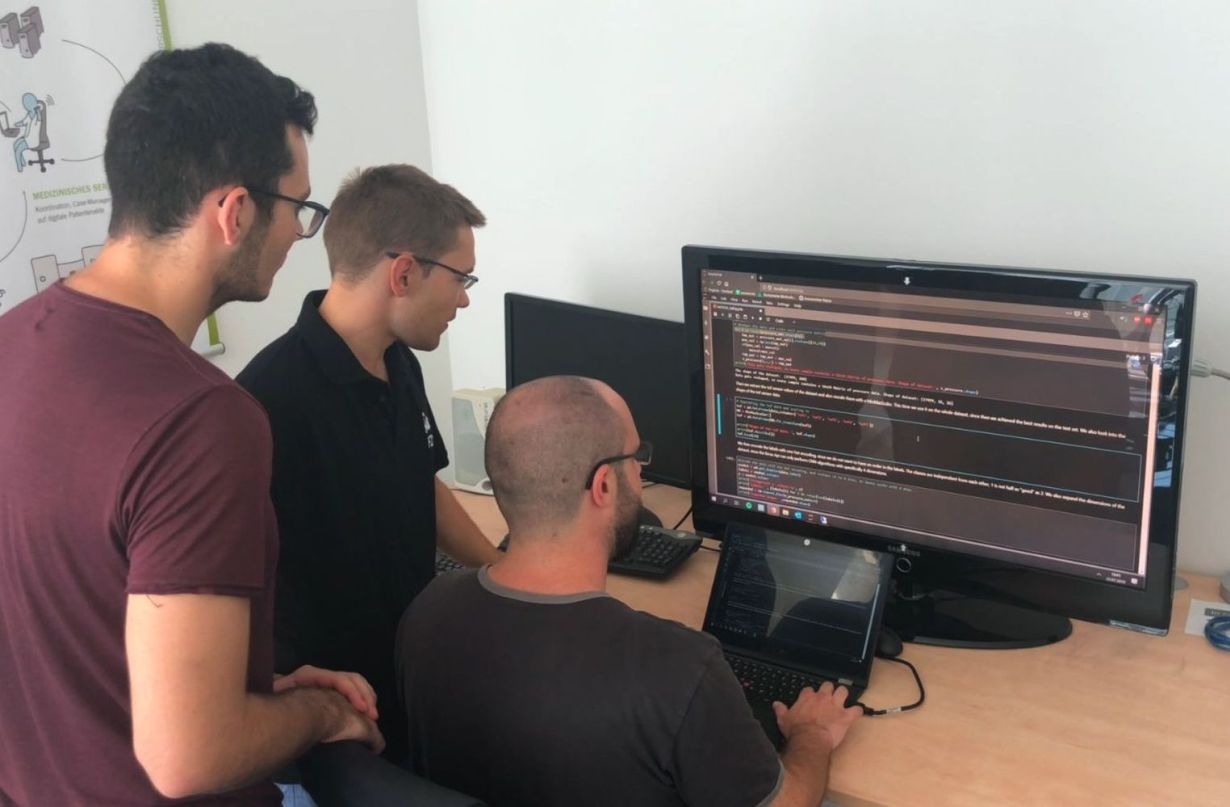Machine learning currently is one of the hot topics in science and industry. It is used for customized IT products or weather forecasts, in personalized medicine or production technologies. Profitable use of methods of artificial intelligence (AI) requires experience. At Karlsruhe Institute of Technology (KIT), future engineers are taught AI methods during their bachelor’s studies already. At the Laboratory for Applied Machine Learning Algorithms, LAMA for short, they are prepared for future work by a project-based AI training.
At LAMA, AI lessons that were accessible to specialists exclusively until a few years ago are now attended by students of electrical engineering and information technology in the first semesters of their studies already. Bachelor’s students are trained to cope with practical challenges, they get to know the many opportunities associated with machine learning as well as its limits, and develop innovative solutions.
Knowledge of AI is not only needed in science, also established companies and young startups need it to generate new fields of business, ranging from the language assistant to industry 4.0 to autonomous
driving. “We want to make our students fit for work in industry and research,” say the makers of LAMA and Heads of KIT’s Institute for Information Processing Technology (ITIV), Professors Jürgen Becker, Eric Sax, and Wilhelm Stork. “This also means to know latest tools and to constantly train their use as early as possible.”

At the laboratory, supercomputers of the latest generation are available to the students. Machine learning requires much computing capacity and gigantic volumes of data. “In the first part of the LAMA lessons, students are imparted most important tools for data processing and program design,” says Simon Stock, one of the supervisors of LAMA. “In the second part, we let them start work.” During the practical phase, called “Into the wild,” students have four weeks to use the knowledge learned in own projects on e.g. solar power prognosis, image recognition, an office chair that does not strain the back, or a neural network composing music. In the past summer semester, 30 students learned to identify challenges, formalize them scientifically, and solve them creatively using AI methods.
“The motivation of our students is very high,” says LAMA supervisor Gabriela Molinar. “They bring along their own projects. Pursuing own ideas helps when you are in the rather tough phases of development.” The results did not only convince the supervisors, also students are rather positive. “It is a hard training, but very interesting. It would now be ideal to join an advanced course in the next semester.” The Heads of ITIV agree, not least because of the high relevance of AI to society: “AI needs interested citizens who know what they are talking about and well-trained engineers who actively shape the change.” They now plan to transfer LAMA experience to academic education at other KIT departments.
More information on LAMA:
https://www.itiv.kit.edu/english/60_LAMA_en.php
Other AI activities at KIT:
http://www.sek.kit.edu/wissenschaftsjahr2019.php (in German)
Being “The University in the Helmholtz Association”, KIT creates and imparts knowledge for the society and the environment. It is the objective to make significant contributions to the global challenges in the fields of energy, mobility, and information. For this, about 10,000 employees cooperate in a broad range of disciplines in natural sciences, engineering sciences, economics, and the humanities and social sciences. KIT prepares its 22,800 students for responsible tasks in society, industry, and science by offering research-based study programs. Innovation efforts at KIT build a bridge between important scientific findings and their application for the benefit of society, economic prosperity, and the preservation of our natural basis of life. KIT is one of the German universities of excellence.

